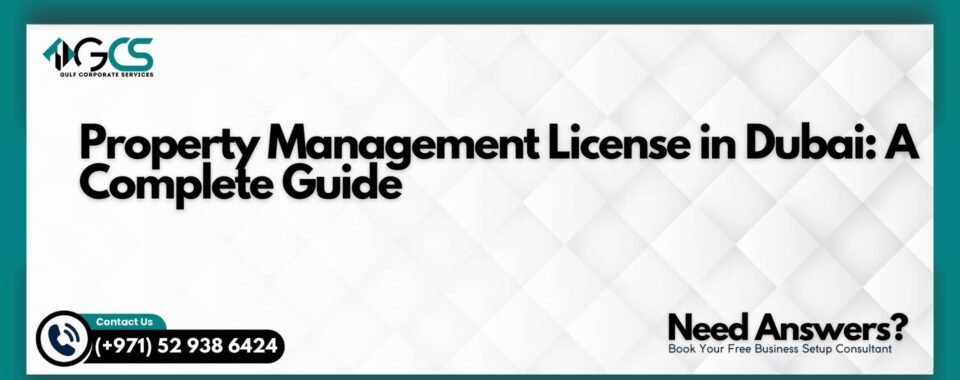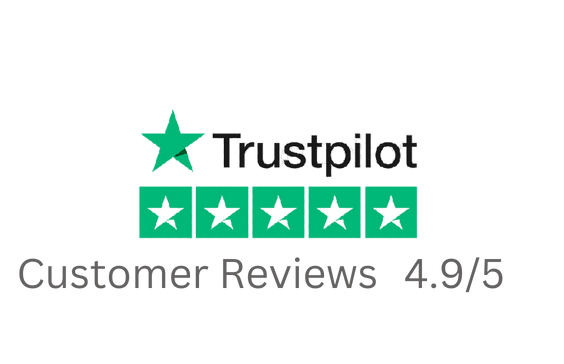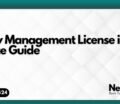
Table of Contents
- Introduction
- What is a Property Management License?
- Responsibilities of Property Management Firms
- Steps to Obtain a Property Management License in Dubai
- Mainland vs Free Zone
- Required Documents
- Application Process
- Compliance and Regulations for Property Management Companies
- Related Licenses
- Real Estate Brokerage License
- Real Estate Development License
- Property Valuation License
- Costs of Acquiring a Property Management License
- Benefits of Starting a Property Management Business in Dubai
- Conclusion
1. Introduction
Dubai’s booming real estate sector offers a wealth of opportunities, not just for property buyers and sellers but also for those interested in managing properties. A Property Management License in Dubai allows companies or individuals to handle the management of residential, commercial, or industrial properties on behalf of landlords or property owners.
From rent collection to maintenance services, property management firms play an essential role in ensuring smooth operations and maximizing the value of real estate assets. This guide will walk you through the process of obtaining a Property Management License in Dubai, the required compliance, and related licenses.
2. What is a Property Management License?
A Property Management License allows businesses to offer services related to the day-to-day operations of managing real estate properties. This license is essential for companies that:
- Oversee the leasing and renting of properties.
- Manage tenant relations.
- Conduct property maintenance and repairs.
- Handle legal compliance related to real estate.
- Provide financial services like rent collection and budgeting.
Property managers essentially act as intermediaries between property owners and tenants, ensuring that properties are well-maintained and profitable.
3. Responsibilities of Property Management Firms
Property management firms offer a wide range of services, such as:
- Tenant Relations: Acting as the primary point of contact for tenants, addressing their concerns, and resolving disputes.
- Rent Collection: Managing the collection of rent payments and ensuring timely payments to landlords.
- Maintenance and Repairs: Overseeing regular maintenance tasks such as plumbing, electrical work, landscaping, and emergency repairs.
- Lease Management: Preparing and managing lease agreements, ensuring compliance with legal requirements, and renewing leases when necessary.
- Property Inspections: Conducting routine inspections to ensure properties are in good condition and identifying areas that require improvement.
- Financial Reporting: Offering property owners detailed financial reports, including income, expenses, and potential investments to enhance property value.
4. Steps to Obtain a Property Management License in Dubai
Step 1: Mainland vs Free Zone
Setting up a property management business can be done either in the mainland or in one of Dubai’s free zones. Here’s a comparison of both options:
- Mainland Setup: You will need a local sponsor who will own 51% of your company shares. However, mainland companies are allowed to operate freely across Dubai and the UAE, giving you access to a larger market.
- Free Zone Setup: Free zones such as Dubai Multi Commodities Centre (DMCC) or Dubai Silicon Oasis (DSO) offer 100% foreign ownership, tax exemptions, and fewer regulatory hurdles. However, your company’s operations may be restricted to the free zone or international markets, which might limit your client base.
Step 2: Required Documents
To apply for a Property Management License, you’ll need the following documents:
- Passport copies of all business partners.
- Trade name reservation certificate.
- Memorandum of Association (MOA).
- Lease agreement for office space in Dubai.
- No Objection Certificate (NOC) from the landlord if required.
- Real Estate Regulatory Agency (RERA) certification, proving that the applicant has completed the required training.
Step 3: Application Process
- RERA Training: Complete the Certified Property Manager Training with RERA. This certification is mandatory for any real estate professionals operating in Dubai.
- Register with the DED or Free Zone Authority: Depending on whether you are setting up in the mainland or a free zone, register your company with the Department of Economic Development (DED) or the respective free zone authority.
- Submit Documents: Once all required documents are prepared, submit them along with your license application.
- Receive Approval and License: Once the application is processed, you will receive your Property Management License, allowing you to legally manage properties in Dubai.
5. Compliance and Regulations for Property Management Companies
Property management companies in Dubai are regulated by RERA. Below are the key compliance points you need to follow:
- RERA Certification: Property managers must be certified by RERA before conducting any real estate-related activities.
- Code of Ethics: Property managers must adhere to a strict code of ethics, including transparency, fairness, and confidentiality when dealing with clients and tenants.
- Rental Regulations: Ensure that rent increases and tenant rights are in line with the Dubai Tenancy Law.
- Contract Management: Use standardized contracts provided by Dubai Land Department (DLD) for lease agreements and other related services.
- License Renewal: Property management licenses must be renewed annually.
6. Related Licenses
Real Estate Brokerage License
A Real Estate Brokerage License allows businesses to facilitate property sales and rentals. Many property management firms also offer brokerage services to clients who wish to sell or buy properties.
Real Estate Development License
For firms involved in the construction and development of properties, a Real Estate Development License is essential. This license allows you to oversee the planning, construction, and marketing of real estate projects.
Property Valuation License
A Property Valuation License is needed for professionals who provide valuation services, assessing the market value of properties. Many property management companies offer this service to clients who want an accurate understanding of their property’s worth.
7. Costs of Acquiring a Property Management License
The cost of acquiring a Property Management License in Dubai depends on the size of the business, the scope of services offered, and the location of the business (mainland or free zone). Here is a general cost breakdown:
- RERA Training and Certification: AED 3,000 – AED 5,000.
- License Fees: AED 10,000 – AED 20,000 per year.
- Trade Name Reservation: AED 1,000 – AED 3,000.
- Office Rent: AED 30,000 – AED 100,000 per year, depending on location and size.
- Insurance: AED 5,000 – AED 20,000 per year.
These costs are estimates and can vary depending on specific business requirements.
8. Benefits of Starting a Property Management Business in Dubai
Steady Income Stream
Property management firms typically charge a percentage of rental income or a flat fee for their services, ensuring a steady cash flow throughout the year. In a city like Dubai, where rental properties are in high demand, property managers can build a strong, recurring revenue model.
Growing Real Estate Market
Dubai’s real estate market continues to expand, with new residential and commercial developments being launched regularly. This growth creates a constant need for property management services, as property owners look for professionals to manage their assets efficiently.
High ROI for Property Investors
As Dubai is a global hub, it attracts both local and international investors. A property management company plays a critical role in maximizing returns for these investors by ensuring that properties are well-maintained, leased promptly, and generating optimal rental income.
9. Conclusion
Obtaining a Property Management License in Dubai offers numerous opportunities for business growth, especially as the real estate sector continues to thrive. By managing properties effectively and adhering to local regulations, your business can build long-term relationships with property owners, tenants, and investors.
Whether you’re looking to manage residential complexes, commercial buildings, or industrial spaces, Dubai’s diverse real estate market offers endless possibilities. As long as you comply with RERA regulations and focus on delivering high-quality services, your property management business can become a trusted partner for real estate investors and owners.








